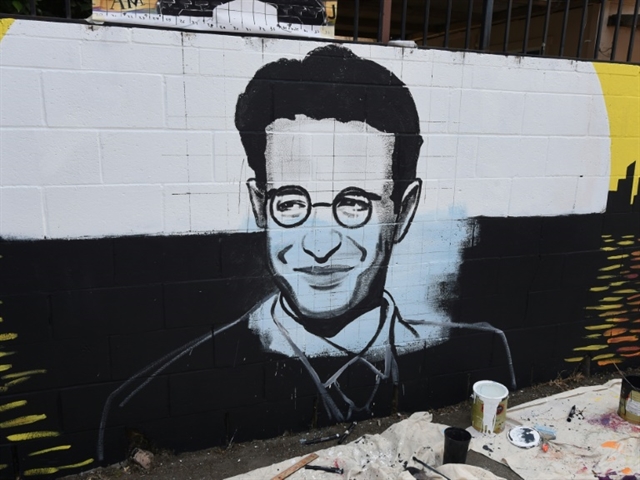 World
World


|
| The Wall Street Journal's Daniel Pearl was abducted and murdered in Pakistan in 2002 while researching a story about Islamist militants. — AFP Photo |
KARACHI — A Pakistani court on Thursday overturned the death sentence of a British-born militant convicted 18 years ago in the kidnapping and beheading of American journalist Daniel Pearl, drawing outrage in the United States.
Pearl's brutal murder sparked international revulsion in early 2002, putting pressure on Pakistan's military government just as it was trying to remake its image following years of backing for the hardline Islamist Taliban in neighbouring Afghanistan.
Ahmed Omar Saeed Sheikh, a jihadist who once studied at the London School of Economics, was arrested days after Pearl's murder and later sentenced to death by hanging.
His lawyer, Khawja Naveed, told AFP that Omar Sheikh's sentence had been reduced to seven years in prison following a lengthy appeals process.
He was expected to be released but the court had not yet issued that order, Naveed said.
Alice Wells, the top US diplomat for South Asia, called the overturning of the sentences against Omar Sheikh and alleged accomplices "an affront to victims of terrorism everywhere."
But she welcomed Pakistani prosecutors' indications that they would appeal the decision.
"Those responsible for Daniel's heinous kidnapping and murder must face the full measure of justice," Wells wrote on Twitter.
The British High Commission in Islamabad said only that the decision involving its national was "a matter for the Pakistan judicial system" and reiterated Britain's opposition in principle to capital punishment.
Saleem Akhtar, a prosecutor in the case, told AFP he hoped to file the appeal before the Supreme Court within two days.
"It is a very detailed verdict and I have to go through it thoroughly to prepare the grounds for the appeal," Akhtar said of the ruling from the high court of Sindh province.
Naveed said the court also overturned the convictions of three other men sentenced to life in prison for abetting Omar. It was not immediately clear when they might be released.
Pearl, 38, was the South Asia bureau chief for The Wall Street Journal when he was abducted in Karachi in January 2002 while researching a story about Islamist militants.
A graphic video showing his decapitation was delivered to the US consulate in the city nearly a month later.
Wrongful conviction investigation
In January 2011, a report released by the Pearl Project at Georgetown University following an investigation into his death made chilling revelations, claiming that the wrong men were convicted for Pearl's murder.
The investigation, led by Pearl's friend and former Wall Street Journal colleague Asra Nomani and a Georgetown University professor, claimed the reporter was murdered by Khalid Sheikh Mohammed, the alleged mastermind of the September 11 2001 attacks, not Omar Sheikh.
Mohammed -- better known as KSM -- was arrested in Pakistan in 2003 and is being held in Guantanamo Bay, Cuba. A US psychologist who interviewed KSM said the prisoner had told him that he had beheaded Pearl.
In 2014, a Pakistan anti-terrorism court acquitted Qari Hashim, who had been arrested in the case in 2005. The judge at the time said there was a lack of evidence in the case.
Omar Sheikh was a major player in jihadist circles. He was jailed in India for kidnapping Western tourists before being freed in 1999 in exchange for passengers of an Indian civilian flight hijacked to Taliban-ruled Afghanistan.
Observers said that Pearl's killers were acting out of revenge for Pakistan's support of the US-led war on Afghanistan's Taliban regime and the Al-Qaeda terror network they harboured.
General Pervez Musharraf, who led Pakistan in 2002, had reversed his country's backing of the Taliban and provided the US military with logistical support, intelligence and air corridors. He followed this up with a crackdown on Islamist militants in his own country.
Thursday's decision was criticised by both the Committee to Protect Journalists and Reporters Without Borders, which for its part said the verdict amounted to a "shocking denial of justice."
The Wall Street Journal said in a statement that it will "continue to seek justice for the murder of Daniel Pearl."
"Danny was a cherished colleague and we will always honour his memory and service," it said. — AFP




